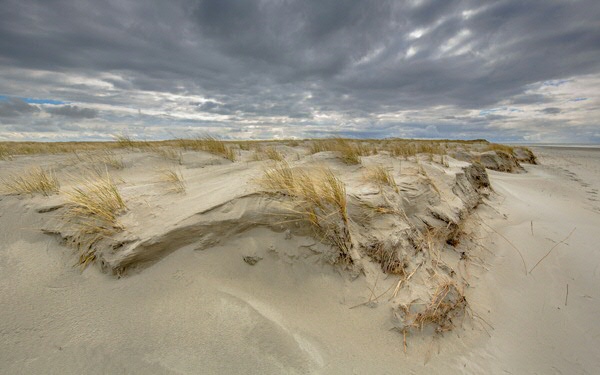How to support and boost sustainable entrepreneurship in the North Sea region?
Sustainable entrepreneurship provides an opportunity for tourism enterprises to increase prosperity, at the same time, it protects the natural and socio-cultural assets that form the unique Wadden Sea region. The application of sustainable entrepreneurship as a means to increase sustainable development is the underlying theme in the research of PhD-researcher Hellen L. Dawo.
The Wadden Sea: a World Heritage Site
The Wadden Sea is a protected nature area in the North Sea region that spans three countries:, the Netherlands, Germany and Denmark. It has a rich biodiversity, a scenic landscape, and makes vital contributions to the health of ecosystems in and beyond the confines of the North Sea. Its ecological importance is exemplified by its role as a feeding ground for millions of migratory birds along the East Atlantic and African – Eurasian flyways. This uniqueness merited the designation of the area as a World Heritage Site with Outstanding Universal Value. In addition, the Wadden Sea area is home to a human population of between 2 and 3.7 million inhabitants. This makes it a stellar example of a protected area in the North Sea region.
Recent decades have seen a decline in traditional industries such as commercial fisheries and large-scale farming, with a growth in other industries, such as tourism and tourism related economic activities. The manufacturing industries located near ports have also grown. Despite this economic development, the North Sea region still faces socio-cultural, ecological and economic challenges.
Due to the high value of nature and heritage in the area, conservation is important. Therefore, industries such as tourism need to operate in a sustainable way. However, it is difficult to implement sustainable business practices despite the need. An approach that combines both the goals of conservation, and sustainable economic development is sustainable entrepreneurship. A difficult process: often socio-cultural, ecological and economic goals compete and face tensions in a business.In the first of three studies, conducted by Ms.Dawo, seven barriers were identified that tourism and tourism-related enterprises face to become more sustainable:
- Limited stakeholder support
- Unsupportive market base
- Lack of relevant sustainable business competences
- Insufficient knowledge and financial resources to support sustainable businesses
- Different understanding of sustainability definition and sustainability needs
- Insufficient capacity
- Exclusion of ecological and socio-cultural wealth and social wealth
Further research
In order to enhance sustainable entrepreneurship in an ecologically and culturally sensitive area, multiple stakeholders need to be involved. Improvement of interactions between stakeholders and SMEs in the Wadden Sea area may lead to an increase in sustainable practices in entrepreneurship. During the first study, enterprises that already utilize sustainable business practices were identified. In the second study, these cases will be highlighted to see how these enterprises overcame barriers in order to yield sustainable products and/or services in this sensitive ecological environment.

More news
-
15 September 2025
Successful visit to the UG by Rector of Institut Teknologi Bandung
